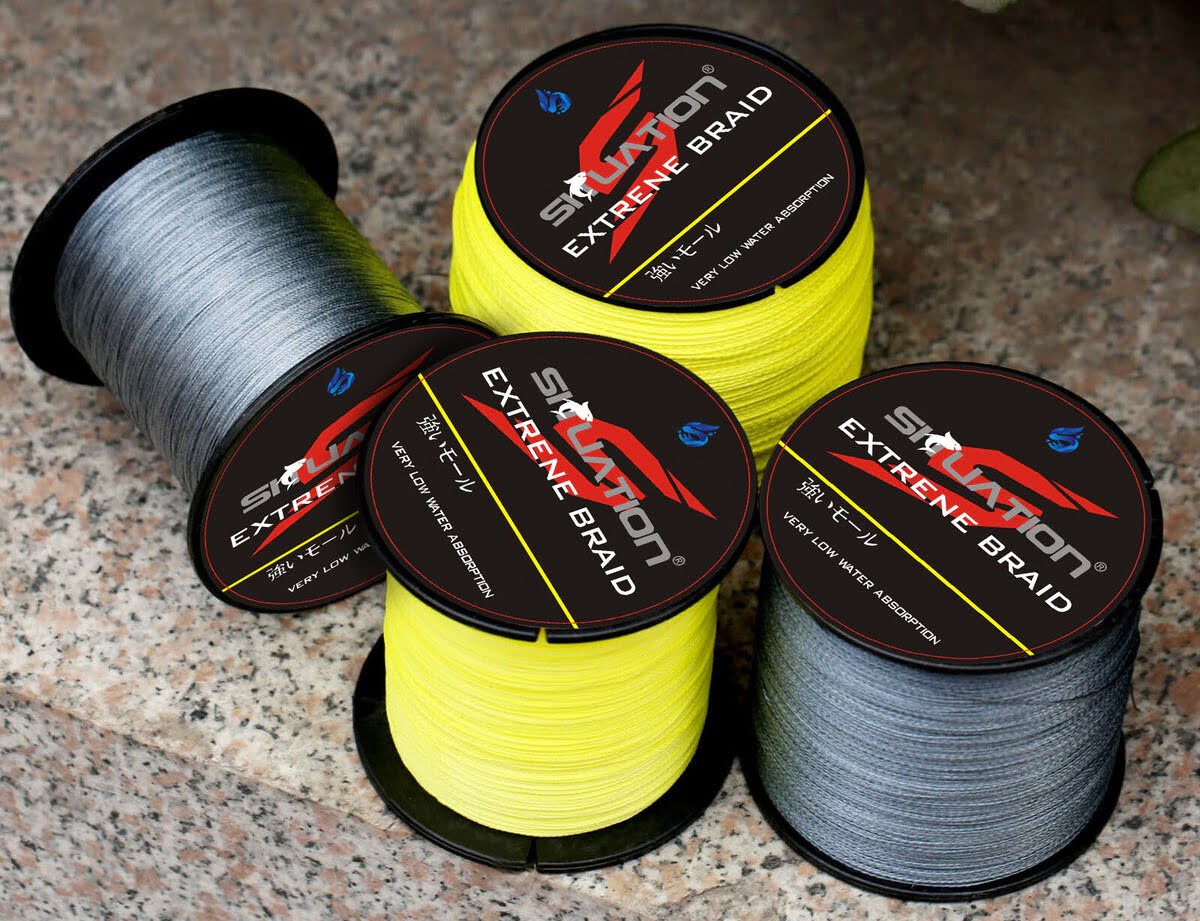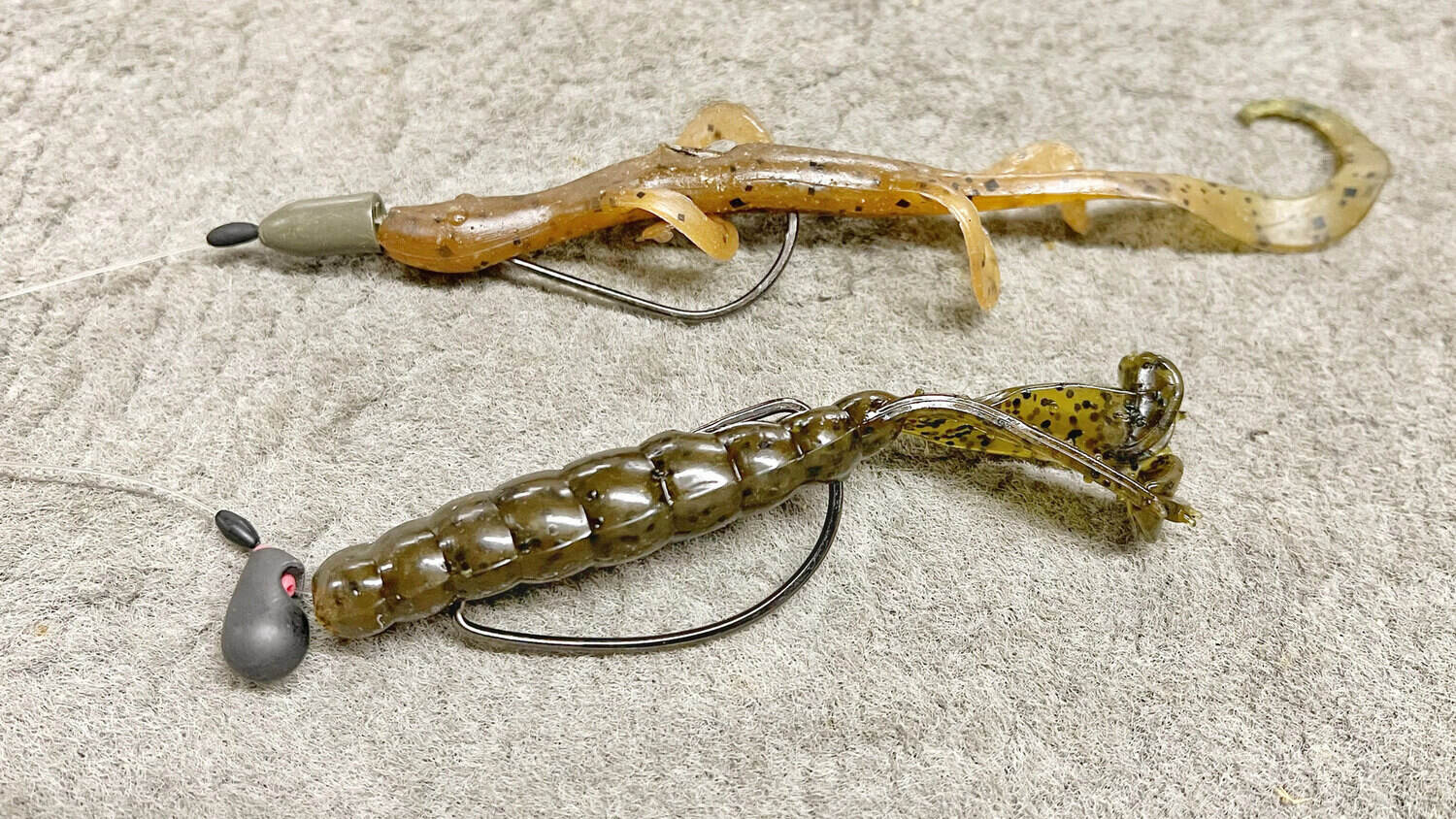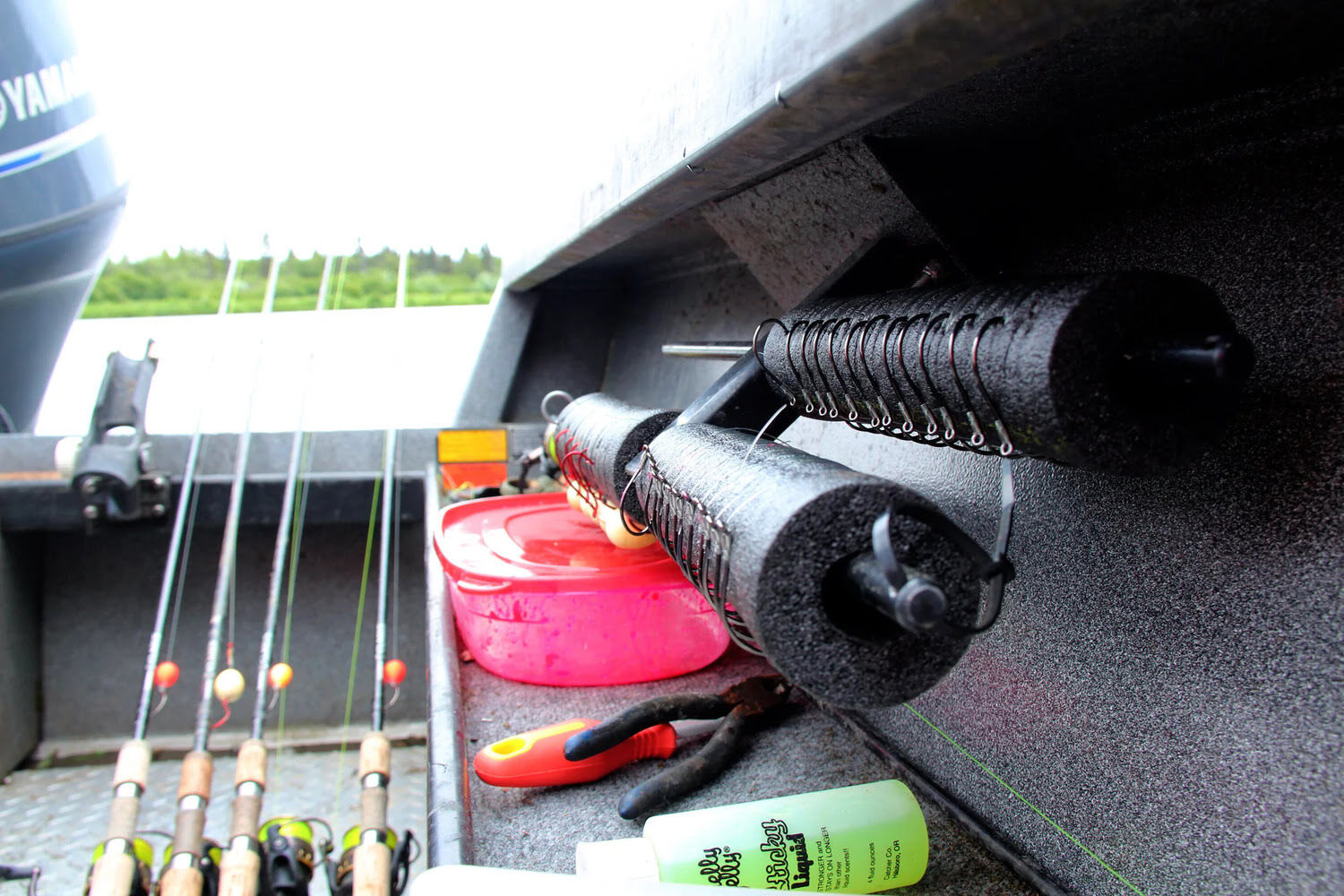

Articles
How To Store Fish Oil
Modified: February 23, 2024
Learn the best ways to store fish oil with our informative articles. Keep your fish oil fresh and effective for optimal health benefits.
(Many of the links in this article redirect to a specific reviewed product. Your purchase of these products through affiliate links helps to generate commission for Storables.com, at no extra cost. Learn more)
Introduction
Fish oil has gained tremendous popularity in recent years due to its numerous health benefits. Packed with omega-3 fatty acids, fish oil is known to support heart health, reduce inflammation, improve brain function, and promote healthy skin. As more people become aware of the positive impact fish oil can have on their well-being, it becomes crucial to understand how to properly store this valuable supplement to preserve its freshness and effectiveness.
Storing fish oil correctly is essential because it is a sensitive product that can deteriorate if exposed to unfavorable conditions such as heat, light, and moisture. In this article, we will explore the various factors to consider when storing fish oil, ensuring that you get the most out of this valuable supplement.
Key Takeaways:
- Properly storing fish oil is crucial for maintaining its freshness and effectiveness. Choose the right container, keep it away from light and heat, seal it tightly, and monitor expiration dates to maximize its benefits.
- Refrigerating or freezing fish oil can extend its shelf life, but always thaw it naturally. Pay attention to expiration dates and consume fish oil within a reasonable period for optimal freshness and potency.
Read more: How To Store Fish While Fishing
Benefits of Fish Oil
Fish oil is renowned for its wide range of health benefits. Here are some of the key advantages of incorporating fish oil into your diet:
- Heart Health: Omega-3 fatty acids found in fish oil have been shown to reduce triglyceride levels, lower blood pressure, and decrease the risk of heart disease.
- Inflammation Reduction: Fish oil contains anti-inflammatory properties that can help alleviate symptoms of chronic inflammation, such as joint pain and stiffness.
- Brain Function: The omega-3 fatty acids, specifically DHA (docosahexaenoic acid), found in fish oil are essential for brain development and cognitive function, making it beneficial for brain health and memory.
- Eye Health: DHA is also a major structural component in the retina of the eyes, making fish oil crucial for maintaining good vision and reducing the risk of age-related macular degeneration.
- Healthy Skin: The omega-3 fatty acids in fish oil help support skin health by reducing inflammation and improving hydration, leading to a clearer complexion and a reduced risk of skin conditions like acne and psoriasis.
- Mood and Mental Health: Fish oil has been associated with improved mood and mental well-being, as omega-3 fatty acids play a vital role in neurotransmitter function.
- Joint Health: Fish oil’s anti-inflammatory properties can help reduce joint pain and promote joint flexibility, making it beneficial for individuals with rheumatoid arthritis and other joint-related conditions.
These are just a few of the many benefits that fish oil can provide. Incorporating this supplement into your daily routine can have a positive impact on your overall health and well-being.
Choosing the Right Fish Oil
When it comes to selecting fish oil, it’s crucial to choose a high-quality product to ensure its effectiveness and safety. Here are some factors to consider when choosing the right fish oil:
- Purity: Look for fish oil that has been purified to remove contaminants like heavy metals and toxins. Look for reputable brands that adhere to strict quality control measures and third-party testing.
- Source of Fish: Opt for fish oil derived from oily, cold-water fish like salmon, mackerel, sardines, or anchovies. These types of fish are rich in omega-3 fatty acids and are less likely to contain high levels of contaminants.
- Concentration of Omega-3s: Check the product label for information on the EPA (eicosapentaenoic acid) and DHA content. Higher concentrations of these omega-3 fatty acids are generally more beneficial.
- Form of Fish Oil: Fish oil is available in both liquid and capsule form. Choose the form that is most convenient for you, but ensure that the product is well-sealed and protected from light.
- Sustainability: Consider purchasing fish oil that is sourced from sustainable and responsibly harvested fish stocks to support environmental conservation efforts.
It’s always a good idea to consult with your healthcare provider or a nutritionist before starting any new dietary supplement, including fish oil. They can provide personalized guidance based on your specific health needs and any existing medical conditions.
By taking these factors into consideration when choosing fish oil, you can ensure that you are investing in a high-quality supplement that will deliver the maximum health benefits.
Storing Fish Oil Properly
To maintain the freshness and effectiveness of fish oil, it’s essential to store it properly. Here are some key tips for storing fish oil:
- Selecting the Right Container: Choose a dark glass bottle or a container made of opaque plastic. These materials help protect the fish oil from exposure to light, which can cause oxidation and degradation of the oil.
- Keeping it Away from Light: Store the fish oil in a cool, dark place, away from direct sunlight and bright artificial lights. Excessive exposure to light can speed up the deterioration of the oil, reducing its potency.
- Avoiding Heat and Humidity: It’s important to keep the fish oil away from heat sources, such as stoves, ovens, or radiators. High temperatures can cause the oil to break down and lose its beneficial properties. Additionally, high humidity can promote the growth of bacteria and affect the stability of the oil.
- Sealing the Bottle Properly: Ensure that the bottle or container is tightly sealed after each use. Oxygen exposure can contribute to oxidation and rancidity of the fish oil.
- Refrigerate or Freeze: While refrigeration is not necessary for all fish oil products, storing them in the refrigerator can help extend their shelf life, especially if the ambient temperature in your location is consistently warm. Freezing fish oil is also an option, but make sure to follow the manufacturer’s instructions for freezing and thawing to prevent any quality issues.
- Monitoring Expiration Dates: Pay attention to the expiration date on the fish oil bottle. Using expired fish oil may lead to a decrease in its potency and effectiveness. It’s always best to use fresh fish oil for optimal results.
Properly storing fish oil is crucial to ensure that it retains its quality and effectiveness throughout its shelf life. By following these storage tips, you can maximize the benefits of fish oil and ensure its freshness when you consume it.
Selecting the Right Container
Choosing the right container to store your fish oil is essential for maintaining its freshness and potency. Here are some factors to consider when selecting the right container:
- Material: Opt for a container made of dark glass, such as amber or cobalt blue, or an opaque plastic material. These materials help block out light and prevent exposure to UV rays, which can degrade the fish oil over time.
- Size: Select a container that is appropriate for the quantity of fish oil you have. A smaller container with less headspace will help minimize the amount of air in the bottle, reducing oxidation and promoting longevity.
- Tight Seal: Make sure the container has a tight and secure seal to prevent air from getting in and causing the fish oil to oxidize. Look for bottles with quality caps or lids that create a reliable seal.
- Opaque or Tinted: If you prefer using a plastic container, ensure that it is opaque or tinted to minimize exposure to light. Transparent plastic bottles can still allow light to penetrate and degrade the fish oil.
It’s important to note that some fish oil products come in pre-packaged containers that are specifically designed to preserve the oil’s freshness. If your fish oil comes in a sealed package, such as softgels or capsules, it’s best to keep them in their original packaging until you’re ready to use them. These packages are often designed to protect the fish oil from light and air, ensuring optimal quality.
By selecting a suitable container for your fish oil, you can help maintain its quality and extend its shelf life. Remember to always store the container in a cool, dark place to avoid exposure to light and heat.
Read more: How To Store Smoked Fish
Keeping it Away from Light
Keeping fish oil away from light is crucial for maintaining its quality and preventing oxidation. Light, especially UV light, can cause the breakdown of omega-3 fatty acids and compromise the effectiveness of the fish oil. Here’s how to protect your fish oil from light:
- Choose Dark Storage: Store your fish oil in a cool, dark place away from direct sunlight or bright artificial light. Sunlight and fluorescent lighting emit UV rays that can penetrate the container and degrade the oil over time. Consider storing your fish oil in a pantry, cabinet, or drawer that doesn’t get exposed to excessive light.
- Avoid Transparent Containers: Transparency allows light to enter the container and potentially damage the fish oil. Opt for containers made of dark glass, such as amber or cobalt blue, which provide better protection against light exposure. If your fish oil comes in a transparent bottle, consider transferring it to a dark-colored container to shield it from light.
- Keep it in the Original Packaging: If your fish oil comes in opaque capsules or softgels, it’s best to keep them in their original packaging until you’re ready to use them. The packaging is designed to provide protection from light and maintain the quality of the fish oil. Avoid transferring the capsules to a different container unless necessary.
By minimizing exposure to light, you can help preserve the integrity of the fish oil and ensure that it maintains its beneficial properties. Remember to always store the container in a cool, dark place to shield it from light sources that can contribute to the degradation of the oil.
Store fish oil in a cool, dark place, away from direct sunlight and heat sources. Keep it tightly sealed to prevent oxidation and degradation of the oil. Refrigeration can also help prolong its shelf life.
Avoiding Heat and Humidity
Heat and humidity can have detrimental effects on the quality and stability of fish oil. To maintain its effectiveness, it’s crucial to store fish oil in a cool and dry environment. Here are some tips to help you avoid heat and humidity when storing fish oil:
- Keep it Cool: Store fish oil in a location that maintains a cool temperature, ideally below 77°F (25°C). Heat accelerates the oxidation process and can lead to rancidity. Avoid storing fish oil near heat sources such as stoves, ovens, or radiators.
- Avoid Moisture-Prone Areas: Keep fish oil away from areas with high humidity, such as bathrooms and kitchens. Moisture can affect the stability of the oil and contribute to the growth of bacteria or mold. Instead, choose a dry location, such as a pantry or cupboard, to store the fish oil.
- Avoid Freezing and Thawing: While refrigeration is acceptable for prolonging the shelf life of fish oil, freezing and thawing can negatively impact its quality. The consistency of the oil may change, and the freezing and thawing process could cause the oil to become rancid or develop off-flavors. If you choose to freeze fish oil, ensure it is done following the manufacturer’s instructions precisely.
- Consider Room Temperature Stability: Some fish oil products are more prone to deterioration in high temperatures. If you live in a hot climate or are storing fish oil during the summer months, consider refrigerating the oil to maintain its stability.
By storing fish oil in a cool and dry environment, you can help preserve its freshness and prevent the risk of degradation due to heat and humidity. Remember to choose a storage location that provides the appropriate temperature and avoids moisture-prone areas.
Sealing the Bottle Properly
Properly sealing the bottle of fish oil is essential to prevent air from entering and compromising the quality of the oil. Here are some tips to ensure that you seal the bottle properly:
- Check the Cap or Lid: Before storing the fish oil, make sure that the cap or lid is in good condition and can provide a tight seal. Inspect the cap for any cracks, leaks, or damage that may compromise the integrity of the seal.
- Screw the Cap On Tightly: When closing the bottle, ensure that you screw the cap or lid on tightly. This helps to create a secure seal and prevents any potential air exposure.
- Avoid Partially Filled Bottles: Whenever possible, transfer the fish oil to a smaller container that better fits the amount of oil remaining. This reduces the headspace inside the bottle, minimizing the contact of the oil with air and potential oxidation.
- Avoid Contaminating the Inside of the Cap: Be mindful not to touch the inside of the cap or lid with your fingers, as this could introduce contaminants or bacteria into the oil. If you accidentally touch the inside of the cap, clean it thoroughly before sealing the bottle.
By sealing the bottle properly, you can help preserve the freshness and quality of the fish oil. This ensures that the oil remains free from oxidation and maintains its beneficial properties until you’re ready to consume it.
Refrigerate or Freeze
Refrigerating or freezing fish oil can help extend its shelf life and maintain its freshness. Here’s how to properly store fish oil in the refrigerator or freezer:
- Refrigeration: While refrigeration is not required for all fish oil products, it can help prolong their freshness, especially if you live in a warm climate or your home tends to get hot. To refrigerate fish oil, ensure the container is tightly sealed and place it in the refrigerator door or a cool corner of the fridge. Avoid storing the oil on the top shelf, where it may be exposed to warmer temperatures when you open the fridge door frequently. Before using refrigerated fish oil, allow it to return to room temperature naturally.
- Freezing: Freezing fish oil is an option if you want to store it for an extended period. When freezing fish oil, follow these steps to minimize potential quality issues:
- Transfer the fish oil to a freezer-safe container, leaving some headspace for expansion.
- Ensure the container is tightly sealed to prevent air exposure.
- Label the container with the date to keep track of the freezing time.
- Place the container in the freezer where it won’t be disturbed.
- Thawing Frozen Fish Oil: To thaw frozen fish oil, transfer the container from the freezer to the refrigerator. Allow it to defrost slowly overnight or for several hours until it reaches a liquid state. Avoid microwaving or using hot water to thaw the oil as it can compromise its quality.
It’s important to note that freezing and thawing fish oil can cause slight changes in its texture, but this doesn’t necessarily affect its effectiveness. However, pay close attention to any changes in smell or taste before using frozen fish oil, as these can be signs of spoilage.
Remember to store fish oil away from strong-smelling foods to prevent any flavor transfer. By refrigerating or freezing fish oil, you can prolong its shelf life and maintain its quality for an extended period.
Read more: How To Store Cooked Fish
Monitoring Expiration Dates
Monitoring the expiration dates of fish oil is crucial to ensure its freshness and effectiveness. Here’s how you can effectively manage and monitor the expiration dates:
- Check the Label: When purchasing fish oil, take note of the expiration date printed on the label. This date indicates the manufacturer’s estimation of when the product will begin to lose its potency and effectiveness.
- Create a System: Develop a system to keep track of the expiration dates of your fish oil bottles. You could use a marker to write the date of purchase on the bottle or maintain a record of purchase dates and expiration dates in a notebook or digital calendar.
- Practice First-In, First-Out (FIFO): Arrange your fish oil bottles in a way that allows you to use the oldest product first. This ensures that you consume the fish oil before it reaches its expiration date.
- Inspect for Changes: As the expiration date approaches, inspect the fish oil for any changes in smell, taste, or appearance. Dispose of any fish oil that has gone rancid or shows signs of spoilage even before the printed expiration date.
- Consider Consuming Fresh Fish Oil: To ensure maximum freshness and potency, it’s recommended to consume fish oil that is within a reasonable period before its expiration date. Aim to finish a bottle of fish oil within a few months of opening it.
Monitoring expiration dates is essential for consuming fish oil at its peak effectiveness. Discard fish oil that is past its expiration date, as it may not deliver the desired health benefits and could potentially be harmful.
By staying vigilant about expiration dates and practicing proper rotation, you can ensure that you are consuming fish oil that is fresh, potent, and beneficial for your health.
Conclusion
Fish oil is a valuable supplement that offers numerous health benefits, including supporting heart health, reducing inflammation, improving brain function, and promoting healthy skin. To reap the maximum benefits from fish oil, it is essential to store it properly.
When storing fish oil, consider selecting the right container made of dark glass or opaque plastic to protect it from light exposure. Keep fish oil away from direct sunlight and bright artificial lights to prevent oxidation and degradation. Additionally, avoid exposing fish oil to heat and humidity, as these factors can compromise its quality and effectiveness.
Sealing the fish oil bottle properly is crucial to prevent air from entering, which can lead to oxidation. Ensure that the container is tightly sealed and avoid touching the inside of the cap to prevent contamination.
Depending on your specific needs, consider refrigerating or freezing fish oil to prolong its shelf life. Refrigeration can help maintain its freshness, while freezing can be a suitable option for long-term storage. Just remember to thaw frozen fish oil in the refrigerator and not with heat.
Lastly, always monitor the expiration dates of fish oil and consume it before it reaches its expiration date. Dispose of any fish oil that has gone rancid or shows signs of spoilage.
By following these guidelines for storing fish oil properly, you can ensure that it maintains its freshness, potency, and health benefits. Incorporating fish oil into your routine can support your overall well-being and contribute to a healthier lifestyle.
Frequently Asked Questions about How To Store Fish Oil
Was this page helpful?
At Storables.com, we guarantee accurate and reliable information. Our content, validated by Expert Board Contributors, is crafted following stringent Editorial Policies. We're committed to providing you with well-researched, expert-backed insights for all your informational needs.














0 thoughts on “How To Store Fish Oil”